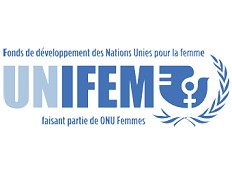The UNIFEM, which will become from January 1st, UN Women under the presidency of Michelle Bachelet, announces the imminent creation in Cap Haitien and Jacmel of two safe house for women victims of violence in critical situations and their children. They will be managed by two NGOs, the Asosyasyon Fanm Solèy Dayita (AFASDA) and Fanm Deside. Indeed, it is the December 10, 2010, at the close of the 16 days of activism against violence against women, that the UNIFEM headquarters in New York has approved two projects totaling nearly $400,000 which will cover the costs of construction and operation for two years.
Since several years, women in these two departments were awaiting the opening of a safe house that can accommodate women whose circumstances require, for their integrity, that they leave the abusive environment where they live everyday. These refuges offers them therefore the possibility of breaking the cycle of violence, to be accompanied in legal and medicolegal steps, then gradually resume control over their lives.
These houses will be open 24h/24h, 7 days a week, 365 days a year. Of psychosocial staff trained will provide support and counseling to women and children and will help them take stock of their situation and make decisions they feel the bests to rebuild their lives.
For UNIFEM, this grant is part of its program of economic security, autonomy and rights of women. It should be mentioned that it is also the expression of a desire shared by various stakeholders engaged in promoting the rights of women, from both the state sector and non-governmental. Linda Tremblay, now program officer for UNIFEM, conducted a study last year to develop models of safe houses that are suitable to Haiti. This study clarifies the importance of such houses in each department since there are needs throughout the country. For now, it is not uncommon that women organizations welcome to their homes at their own risk, or even in flimsy facilities, these Women who need a safe place.
The range of services to be provided may change according to Kathy Mangones, UNIFEM Representative in Haiti, but at least from 2011, more women will be housed in these departments. Another challenge which the various stakeholders in the support will face, she says, is to develop mechanisms to strengthen the response, standardize services and share best practices.
HL/ HaitiLibre
source : www.haitilibre.com

No comments:
Post a Comment